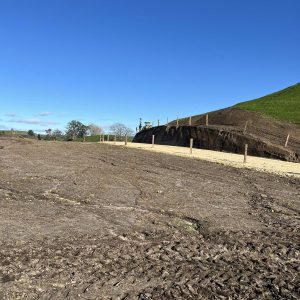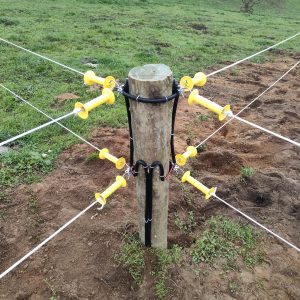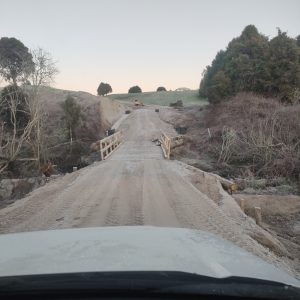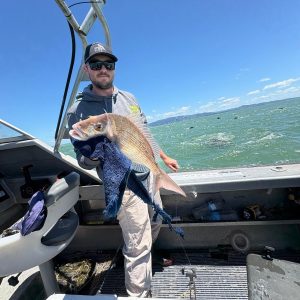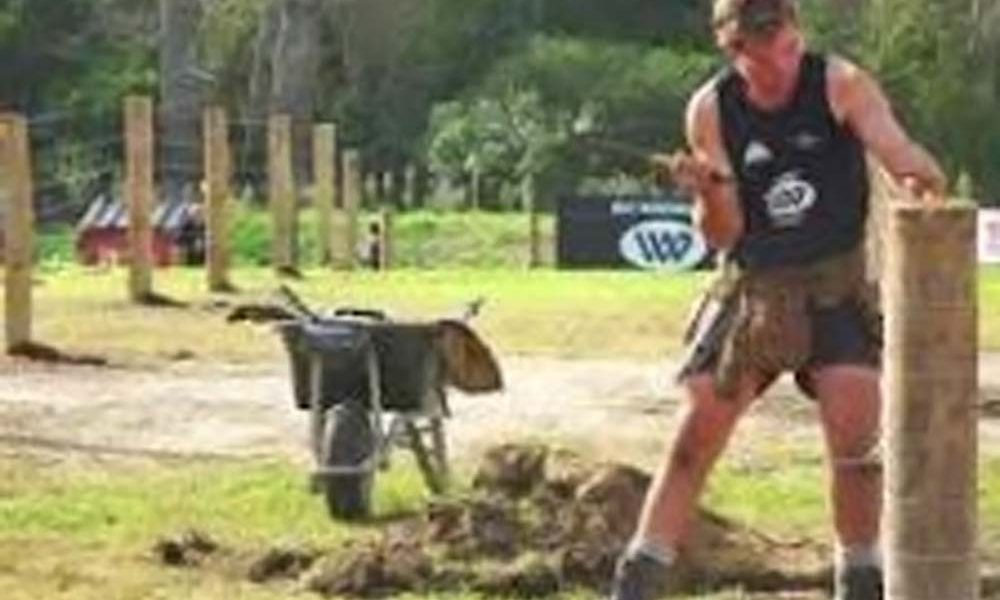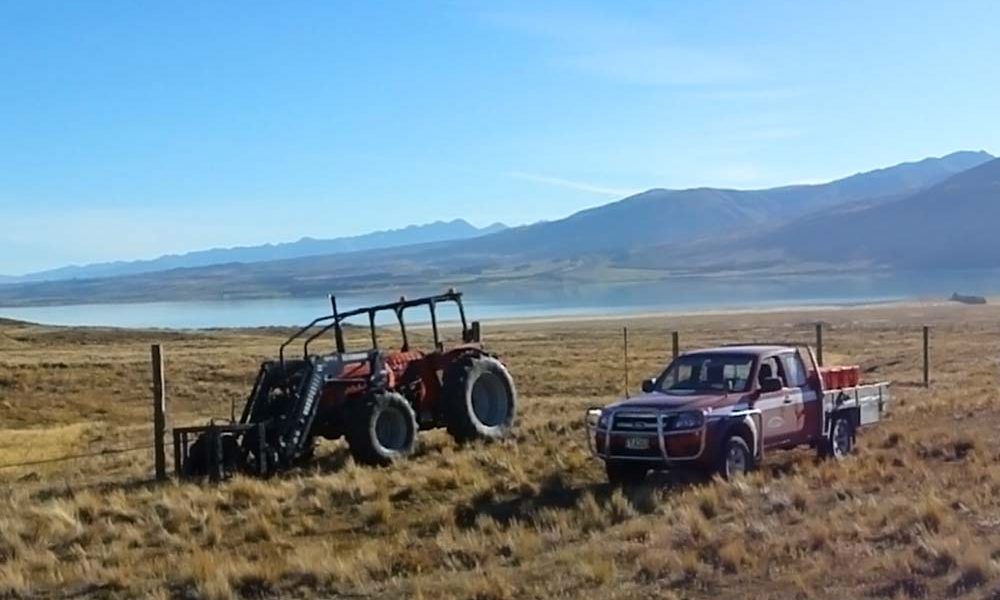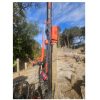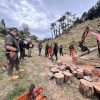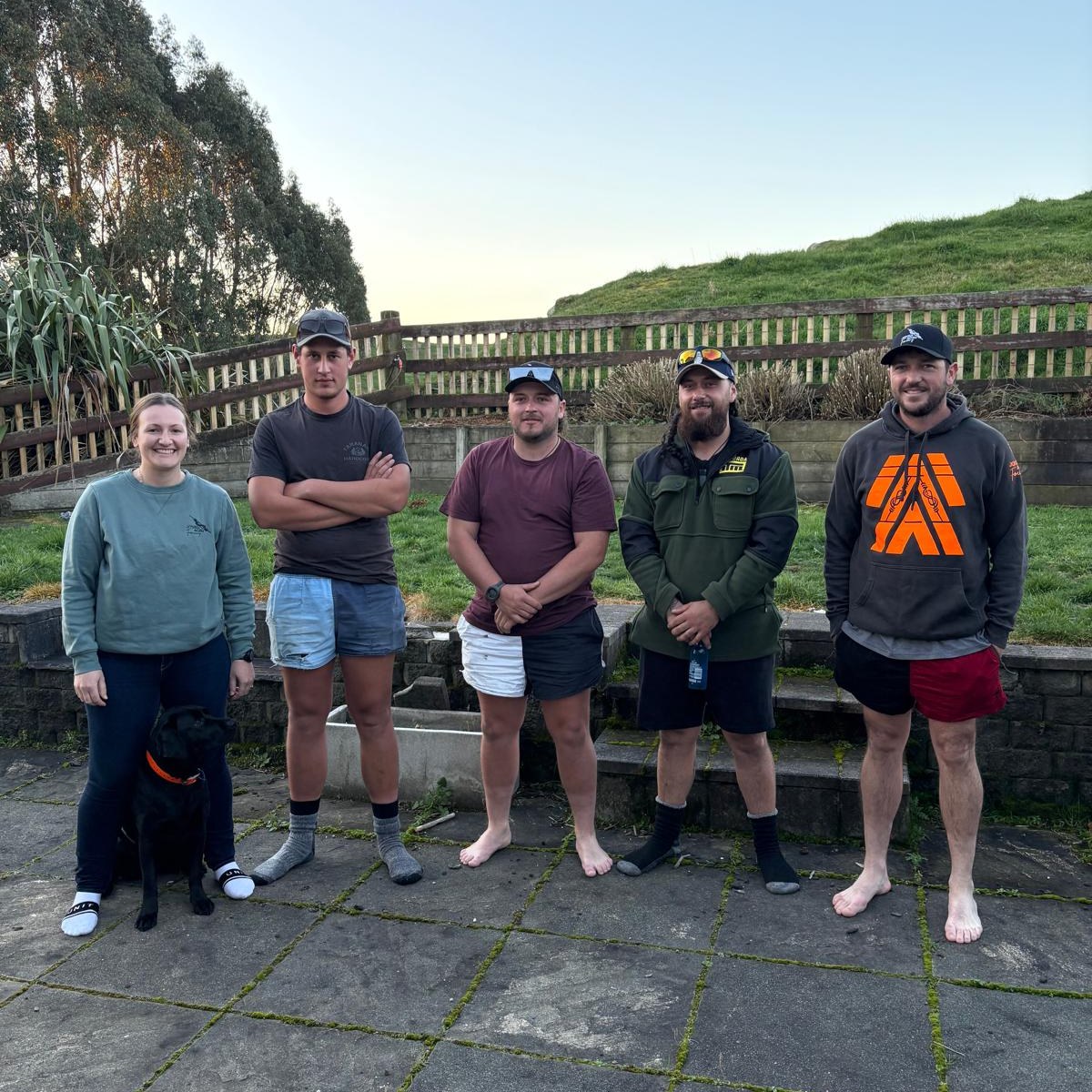
A week in the life of Jones Agri Fencing
Setting up a business in South Waikato has opened a range of opportunities for fencing contractors Cory and Chloe Jones.
The owners of Jones Agri Fencing carry out a wide range of fencing services from fencing up a sheep milking operation and a horse stud farm, to carrying out large contracts with local dairy farms – they are also the preferred contractor in the region for Onefarm steel cattle yards.
The couple started the business three years ago, having moved back to the area from the deep south of Otago.
Cory, originally a builder by trade, had spent three years working for Nick Terry at Custom Fencing, where he got his start in the fencing industry. And once he started, he was hooked. Apart from doing a bit of fencing on the family property, it was all new to him.
“I thought I’d try something new. I started and just didn’t stop.”
He enjoyed the incredible countryside that the work was taking him to around the region.
As they made the move back to the Waikato, the couple saw an opportunity to start their own fencing contracting business.
Cory got started with a Revolution 180 post driver, a John Deere tractor, with his old Ford Courier.
It was a different world of fencing in the Waikato compared to Otago, Cory says.
“I went from high country stations to dairy farms. It completely changed the style of fencing. I’ve gone from a lot of netting, Waratahs and rocks, to soft ground.”
“The big one for me to get my head around was putting posts in at more than five metres.”
He was a one-man band for about a year when things started to get busy, and he needed to take on some staff.
“There were three of us for a while there, and in the last year we’ve got a couple of big contracts.”
Teaming up with Onefarm has also provided a variety of work, and takes the team further afield from home base.
The team grew to four staff, and Cory “took the leap” this year and bought a second tractor and post driver, and a side-by-side.
While working full-time as a regional farm operations manager for Fonterra, Chloe helps out with the future direction, bookwork and keeping on top of health and safety.
A typical week starts on Monday morning down at the yard at 6am, where the team gets prepared for the day ahead and “have a yarn” about what’s happening for the day, Cory says.
“Then usually two of us will get in each Ute and head away for the day and start working on what we need to achieve.”
“I spend a lot of time on the phone organising gear and materials, and then get to work and do the easy part of the job, which is fencing.”
“It’s a good day if I don’t hear too much from Cory,” Chloe adds.
“It could mean our team’s pumping, they’re busy, jobs are going well, and everyone’s just getting stuck into it.”
“It could also mean – things have turned to shit – he’s busy fighting fires, sorting jobs and gear out, talking to clients, gear’s broken down, and I’ll hear about it at the dinner table.“
“It’s pretty tough being at the other end of the phone sometimes – it’s ‘I’m doing fine but I need to vent – this has gone wrong’; ‘this gear’s just broken and will cost us $3,000 to fix’; ‘we need these new items – have we got the money in cashflow’; or it could be a win of, “Hey, we have a new client coming on and this is going to be awesome, I can’t wait.”
“There are days where Cory is trying to quote or invoice, and I hear yelling at the computer. I’d consider (this) normal from people in our sectors that have strengths more so in ‘doing the do’ with tools, and where technology challenges them outside their comfort zone. I’m sure many other fencers can empathise with that.”
Cory finds that putting out fires makes up a large part of the job of running a contracting business.
“I spend more time putting out fires than getting on the tools.”
Cashflow is challenging to manage, Chloe says.
“Having money coming in doesn’t mean you have enough cash to pay what you need to, and that’s been a huge learning curve for us since getting stuck in.”
“It was extremely scary to take that first step of starting a business, and I know Cory was quite uncertain. Doing some simple cashflow and talking with our accountant, bank, previous employer and families that have started businesses has helped a lot, and put a lot of the questions to rest with answers.”
One thing making life easier currently was being able to order material by the unit load for the specific job, Cory says.
“I’d normally be running around doing jobs, but at the moment, it’s pretty easy.”
“The way we do it, I just put (materials) straight through the client’s accounts. I just found it was easier to manage.”
He likes to organise materials a month out from starting a job where possible.
“It just means if there’s a delay or a product is not available, we can make sure we’ve still got time.”
It is fortunate that Cory has timber supplier, Roundwood, just up the road, with whom he’s built a strong relationship.
“We get most of our gear relatively quickly.”
Finding staff is a challenging side of running the business, he says. But he currently has a good team working together.
“I’m pretty lucky at the moment with who I’ve got.”
Two staff are studying towards their Level 3 Certificate in Fencing. Cory himself is a certified fencer through FCANZ.
He takes on students through the local high school Gateway programme once a week to give them an opportunity to experience fencing.
“It gives kids the opportunity to see that fencing can be a career, not just a job.”
Cory has engaged Rural Safe to help with with health and safety management, and the team holds a health and safety meeting once a month. He cooks breakfast and the team chats about how things have gone, what needs repairs and maintenance, or any near misses or incidents.
“We are trying to make a habit of this,” Chloe says.
“Making health and safety not being a bad thing to discuss, but more of a what can we change to make sure we are all getting home safely. It’s a bit of a culture shift, but we will keep chipping away at it; all good things take time. Getting the team comfortable with talking about it and topics within it is what we are aiming for.
Cory says the investment in Rural Safe was a worthwhile one.
“At the end of the day, we are all busy and keeping up with it all is pretty hard.”
Chloe has created a QR Code for the team to use to log things like upcoming vehicle services, which then sends an email to the office.
“It just saves paperwork getting dirty in the Ute,” Cory says.
Chloe says they operate the business on some simple fundamentals – buying gear that makes their lives and employees’ lives easy.
“So they can do their job well and go home safe, creating a good culture for the team so they enjoy what they do and keep coming to work. That’s a win for us and a win for them.”
They also make sure they celebrate the wins.
“If we have had a great month, (we plan) the next fishing trip with the lads so we can say thanks for your hard work.”
“And most importantly, is doing the job well and creating the best quality product we can for our clients to have a great result with a product that is around for years to come.”
Despite the challenges, it is hugely rewarding work, Chloe says.
“It’s neat to reflect on the good parts of owning a business too. And that needn’t be forgotten in those tough times, there’s always a light at the end of the tunnel.”
Outside of the business, Cory and Chloe are members of the local squash club and enjoy life on their 1.6-hectare lifestyle block outside of Tokoroa.
Cory likes to get out hunting and fishing where he can.
“Any chance I can get out there, chasing animals or jumping on a boat.”
Article by Rosa Watson
Published in WIRED issue 78/September 2025 by Fencing Contractors Association NZ
You may also like: New skills creating newfound pathways
Read WIRED online
Follow us on Facebook
© Fencing Contractors Association NZ (FCANZ)

